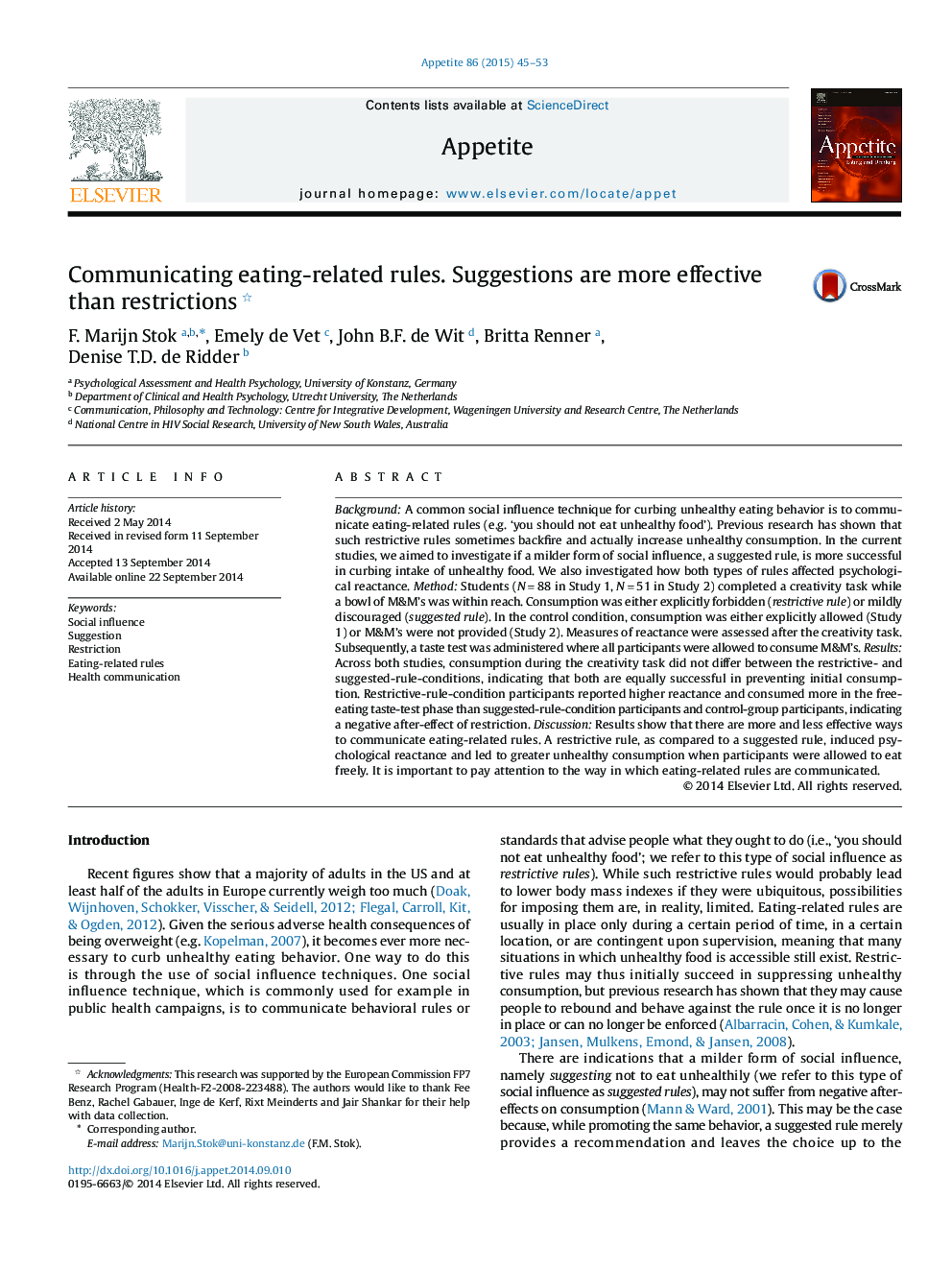| کد مقاله | کد نشریه | سال انتشار | مقاله انگلیسی | نسخه تمام متن |
|---|---|---|---|---|
| 939449 | 1475394 | 2015 | 9 صفحه PDF | دانلود رایگان |
• Two non-consumption rules were compared: explicit restriction and subtle suggestion.
• The experiment consisted of two phases: (1) non-consumption; (2) ad-lib eating.
• Both rules prevented consumption during the non-consumption phase.
• A restrictive rule led to higher psychological reactance than did a suggested rule.
• A restrictive rule also led to higher consumption in the free-eating phase.
Background: A common social influence technique for curbing unhealthy eating behavior is to communicate eating-related rules (e.g. ‘you should not eat unhealthy food’). Previous research has shown that such restrictive rules sometimes backfire and actually increase unhealthy consumption. In the current studies, we aimed to investigate if a milder form of social influence, a suggested rule, is more successful in curbing intake of unhealthy food. We also investigated how both types of rules affected psychological reactance. Method: Students (N = 88 in Study 1, N = 51 in Study 2) completed a creativity task while a bowl of M&M's was within reach. Consumption was either explicitly forbidden (restrictive rule) or mildly discouraged (suggested rule). In the control condition, consumption was either explicitly allowed (Study 1) or M&M's were not provided (Study 2). Measures of reactance were assessed after the creativity task. Subsequently, a taste test was administered where all participants were allowed to consume M&M's. Results: Across both studies, consumption during the creativity task did not differ between the restrictive- and suggested-rule-conditions, indicating that both are equally successful in preventing initial consumption. Restrictive-rule-condition participants reported higher reactance and consumed more in the free-eating taste-test phase than suggested-rule-condition participants and control-group participants, indicating a negative after-effect of restriction. Discussion: Results show that there are more and less effective ways to communicate eating-related rules. A restrictive rule, as compared to a suggested rule, induced psychological reactance and led to greater unhealthy consumption when participants were allowed to eat freely. It is important to pay attention to the way in which eating-related rules are communicated.
Journal: Appetite - Volume 86, 1 March 2015, Pages 45–53
